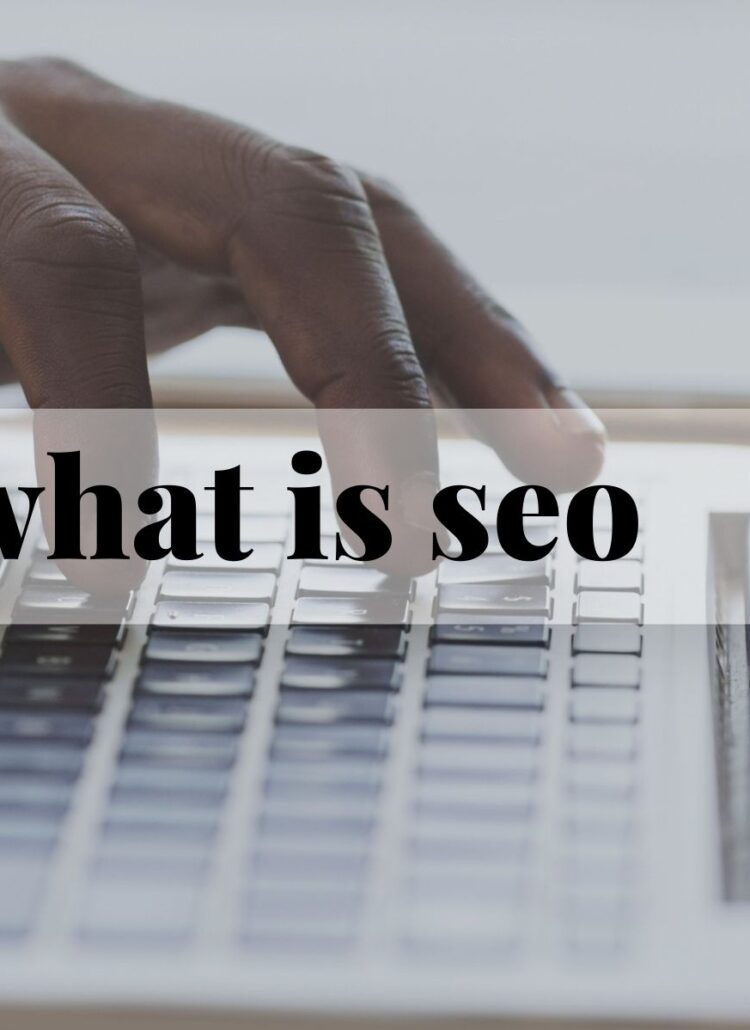Search engine optimization (SEO) is a constantly evolving field, and as such, it can be difficult to separate SEO myths from SEO facts. It can be easy to get caught up in the latest trends and tactics, but it is important to understand what really works and what doesn’t. In this article, we will debunk some common SEO myths and highlight the facts to help you create an effective SEO strategy for your website.

For an in-depth deep dive into SEO Myths then check out the 10 SEO Myths You Should Ignore with AHREFS
Common SEO Myths
- “Keywords don’t matter anymore.” This is a common myth that has been circulating for a while now. While it is true that keyword stuffing can hurt your rankings, keywords are still a crucial aspect of SEO. Using relevant and targeted keywords can help your blog rank higher in search results and attract the right audience.
- “Content-length doesn’t matter.” Another myth is that content length doesn’t matter as long as it is high-quality. However, research has shown that longer content tends to rank better in search results. This is because longer content usually provides more value and information to the reader, which can lead to a better user experience.
- “SEO is all about tricks and hacks.” Some people believe that SEO is all about finding sneaky ways to trick search engines into ranking your blog higher. However, this is not true. SEO is about creating a high-quality, user-friendly website that provides value to its visitors. It is about understanding how search engines work and creating content that aligns with their guidelines.
- “Social media doesn’t impact SEO.” Social media and SEO are often thought of as separate entities, but they can actually have a significant impact on each other. Social media can drive traffic to your blog, which can improve your search rankings. Additionally, social media signals, such as shares and likes, can influence your search rankings.
- “Guest blogging is a waste of time.” Guest blogging can be a valuable way to build your brand and get your content in front of a new audience. It can also help improve your search rankings by getting backlinks from high-quality websites. However, it is important to make sure that the websites you guest blog for are reputable and relevant to your industry.
- “Meta tags don’t matter anymore.” Meta tags, including the title tag and meta description, are still an important aspect of SEO. The title tag is the main headline that appears in search results and the meta description is the short summary that appears below it. These tags help search engines understand the content on your page and can influence whether or not someone clicks on your website.
- “SEO is a one-time thing.” SEO is not a one-time effort. It requires ongoing work to maintain and improve your search rankings. This includes creating new content, optimizing existing content, and staying up-to-date with the latest SEO trends and best practices.
- “Paid links can improve your rankings.” Buying links to improve your search rankings is a big no-no. Search engines consider paid links to be a form of spam and can penalize your website for using them. It is important to earn your links naturally by creating high-quality content that others want to link to.
- “SEO is only for big businesses.” SEO is not just for big businesses with big budgets. It is for any business or website owner who wants to improve their search visibility and drive traffic to their website. With the right strategies and techniques, small businesses can compete with larger ones in search results.
- “SEO is easy.” SEO can seem easy at first, but it is a constantly evolving field that requires a lot of knowledge and effort to master. It takes time and resources to research, create, and optimize content, as well as track and analyze results.
- “SEO is all about the technical stuff.” While technical SEO is important, it is just one aspect of a comprehensive SEO strategy. Content, user experience, and backlinks are also crucial factors
- Keyword Stuffing. One popular myth is that keyword stuffing will help boost rankings in the SERPs (search engine results pages). This simply isn’t true; in fact, keyword stuffing may actually hurt your ranking because it makes content difficult for users to read or understand due to overuse of keywords.
- Link Building doesn’t matter. Another myth is that link building doesn’t matter anymore – but this couldn’t be further from the truth! Link building still plays an important role in improving a website’s overall authority which helps with its organic ranking potential; however, links must come from reputable sources otherwise they could have negative effects on rankings due their low quality score given by Google algorithms .
FAQS
Is SEO Important?
Yes, SEO is important for a blog site. SEO helps search engines understand the content on your website and improve its ranking in search results. This can help drive more traffic to your blog and increase your visibility online.
Optimizing your blog for SEO can also help improve the user experience. By using relevant and targeted keywords, as well as providing valuable and informative content, you can attract the right audience to your blog and keep them coming back for more.
In addition, SEO can help you build credibility and authority in your industry. By ranking high in search results, you can establish your blog as a go-to resource for information and insights.
Overall, SEO is an important aspect of running a successful blog. By implementing SEO best practices and staying up-to-date with the latest trends, you can improve your search visibility and drive more traffic to your website.

What Types Of SEO Do I Need
When it comes to search engine optimization (SEO), there are several different types to consider. Here are some of the main categories of SEO:
- On-page SEO: This type of SEO focuses on optimizing the individual pages of your website to improve their ranking in search results. This includes optimizing your website’s content, images, and technical aspects like page speed and mobile-friendliness.
- Off-page SEO: Off-page SEO refers to the actions you take outside of your website to improve its search rankings. This includes getting backlinks from other reputable websites, as well as utilizing social media to drive traffic to your website.
- Technical SEO: Technical SEO involves optimizing the underlying technical aspects of your website to improve its search rankings. This includes things like improving your website’s page speed, ensuring it is mobile-friendly, and optimizing your website’s URLs and navigation.
- Local SEO: If you have a brick-and-mortar business or you want to attract customers from a specific geographic location, then local SEO is important. This type of SEO involves optimizing your website for local search terms and including your location in your website’s content and meta tags.
- E-commerce SEO: If you have an online store, then e-commerce SEO is crucial. This type of SEO involves optimizing your product pages and categories to improve their ranking in search results and drive sales.
Which types of SEO you need will depend on your business and goals. It is important to conduct a thorough analysis of your website and target audience to determine which types of SEO will be most beneficial for your business. Since my blog site is not a local business, then it would not make sense to focus my time or energy on local SEO.
How Can I Make Google Show My Blogsite Love?
- Conduct keyword research: Identify the keywords that are relevant to your business and target audience. These keywords should be incorporated into your website’s content and meta tags to help search engines understand what your website is about.
- Create high-quality content: Developing and publishing valuable, informative, and engaging content can help improve your search rankings and attract visitors to your website.
- Optimize your website’s technical aspects: This includes things like page speed, mobile-friendliness, and the structure of your website’s URLs and navigation.
- Utilize header tags: Header tags, such as H1 and H2, help break up your content and make it easier for both users and search engines to understand the hierarchy of your information.
- Use internal and external links: Linking to other relevant and high-quality websites can help improve your credibility and search rankings. It is also important to use internal links to direct users and search engines to other pages on your website.
- Optimize your images: Using descriptive, relevant filenames and alt tags for images can help search engines understand the content on your website and improve your search rankings.
- Use social media: Having a presence on social media platforms and actively sharing your content can help drive traffic to your website and improve your search rankings.
- Monitor and analyze your results: Use tools like Google Analytics to track your website’s traffic and see how well your SEO efforts are paying off. This can help you understand what is and isn’t working and adjust your strategy accordingly.
- Optimizing your website for search engines can seem daunting at first, but by following these tips and staying up-to-date with the latest best practices, you can improve your search rankings and drive more traffic to your website.
What Is The Biggest SEO Myth?
Off the top of my head I would say that a small domain authority (DA) site
can’t outrank a higher dA site.
Recap
Many people have misconceptions about how to optimize their websites for search engines. It’s important that you separate the myths from the facts. One of the best things that you can do for your blog site is to get a solid understanding of how SEO works and what is an SEO myth, vs an SEO Fact.




